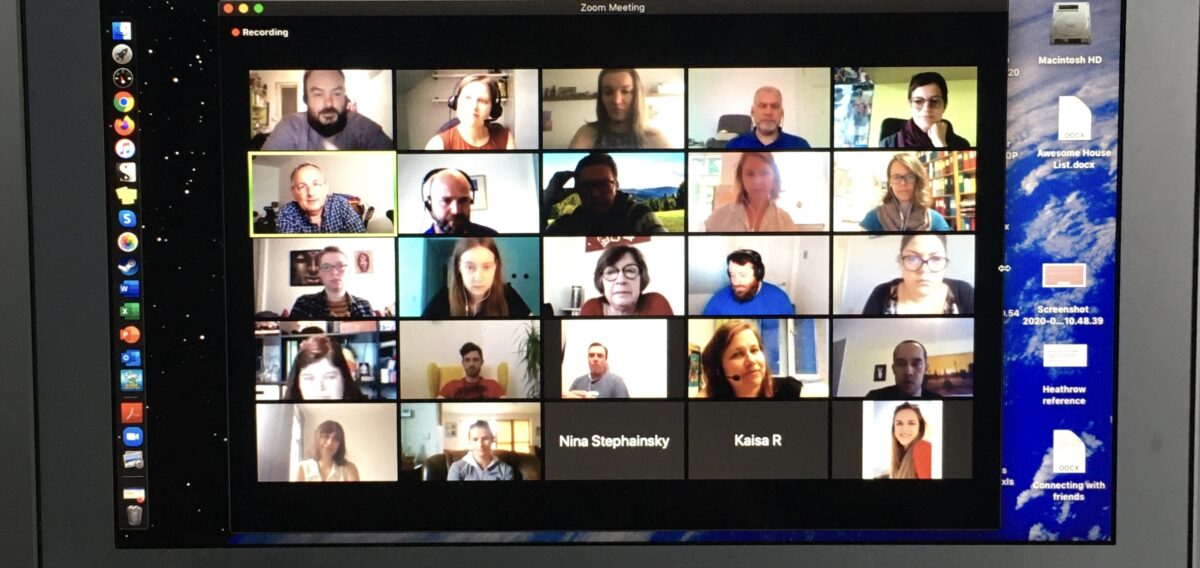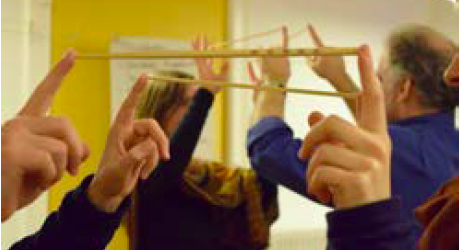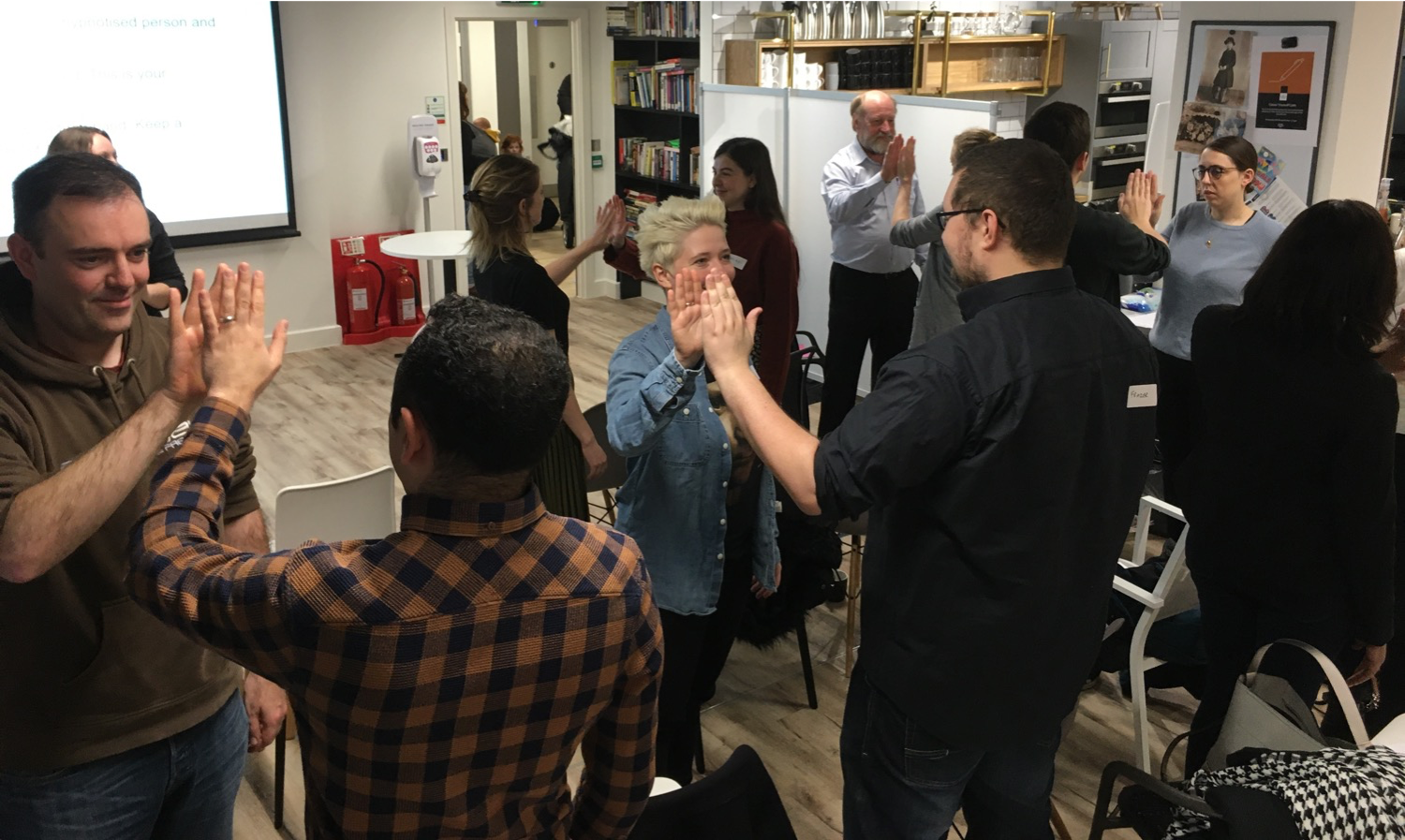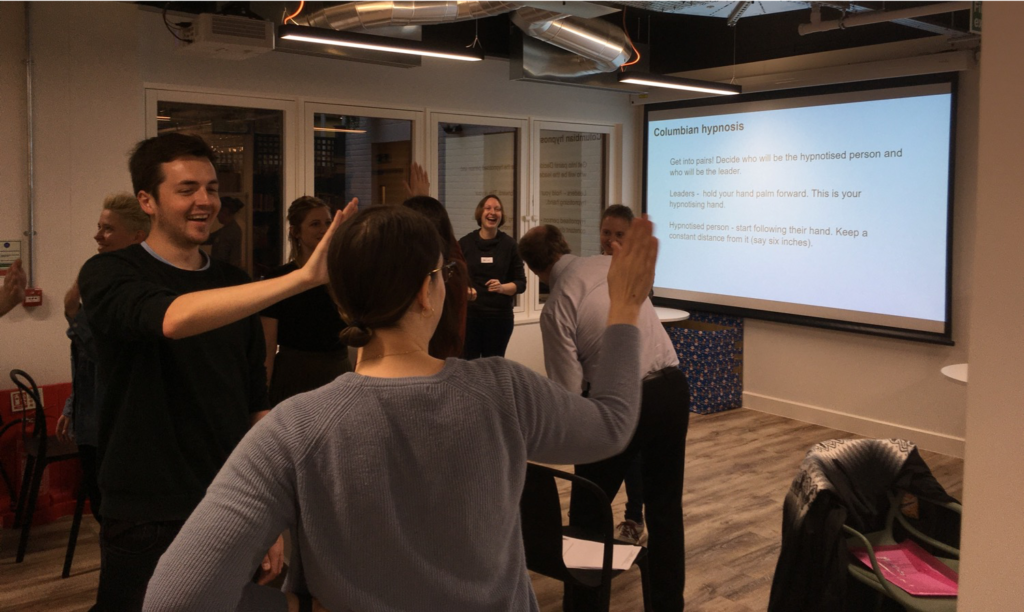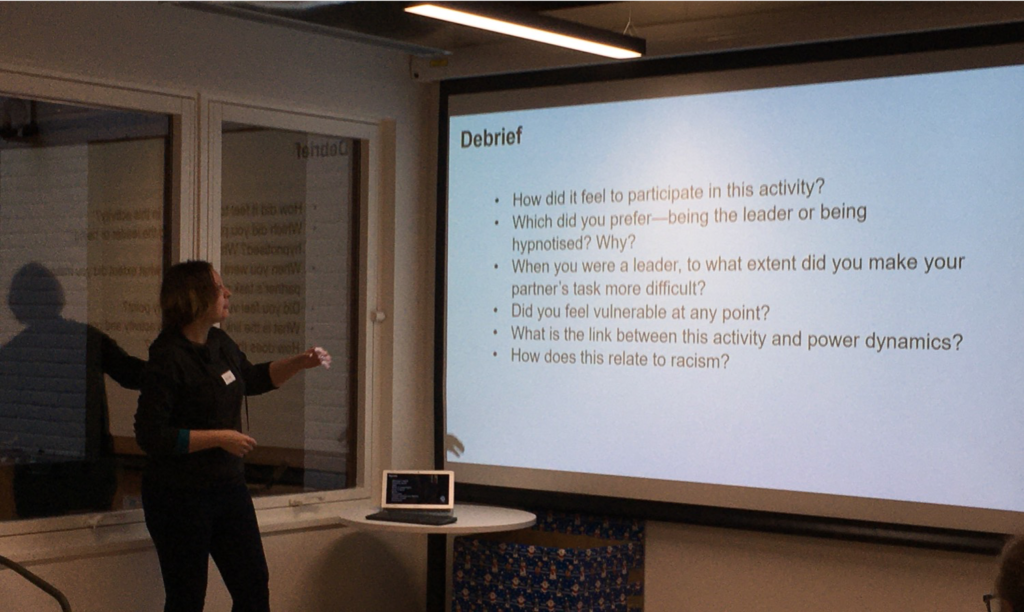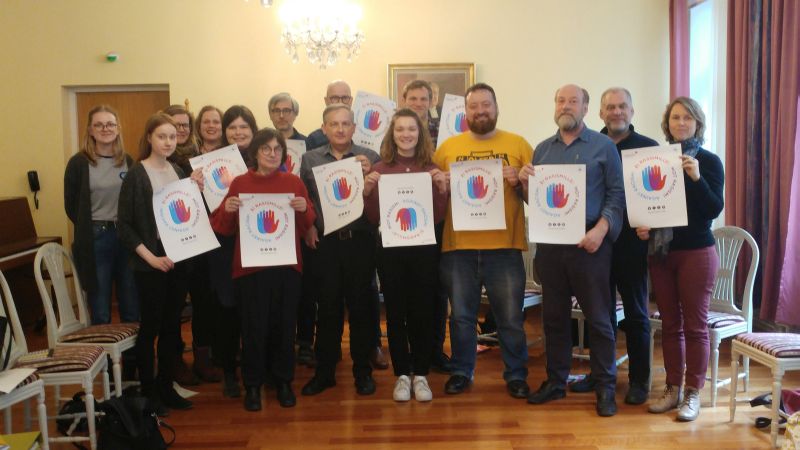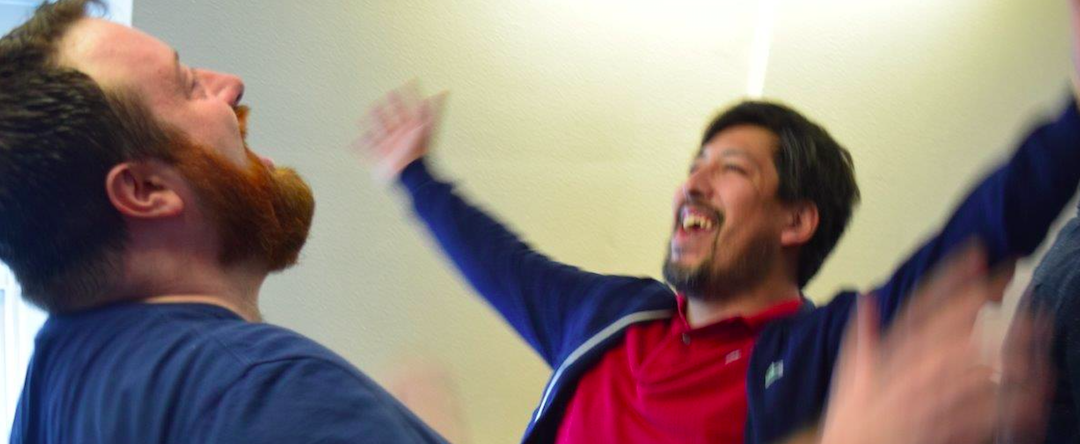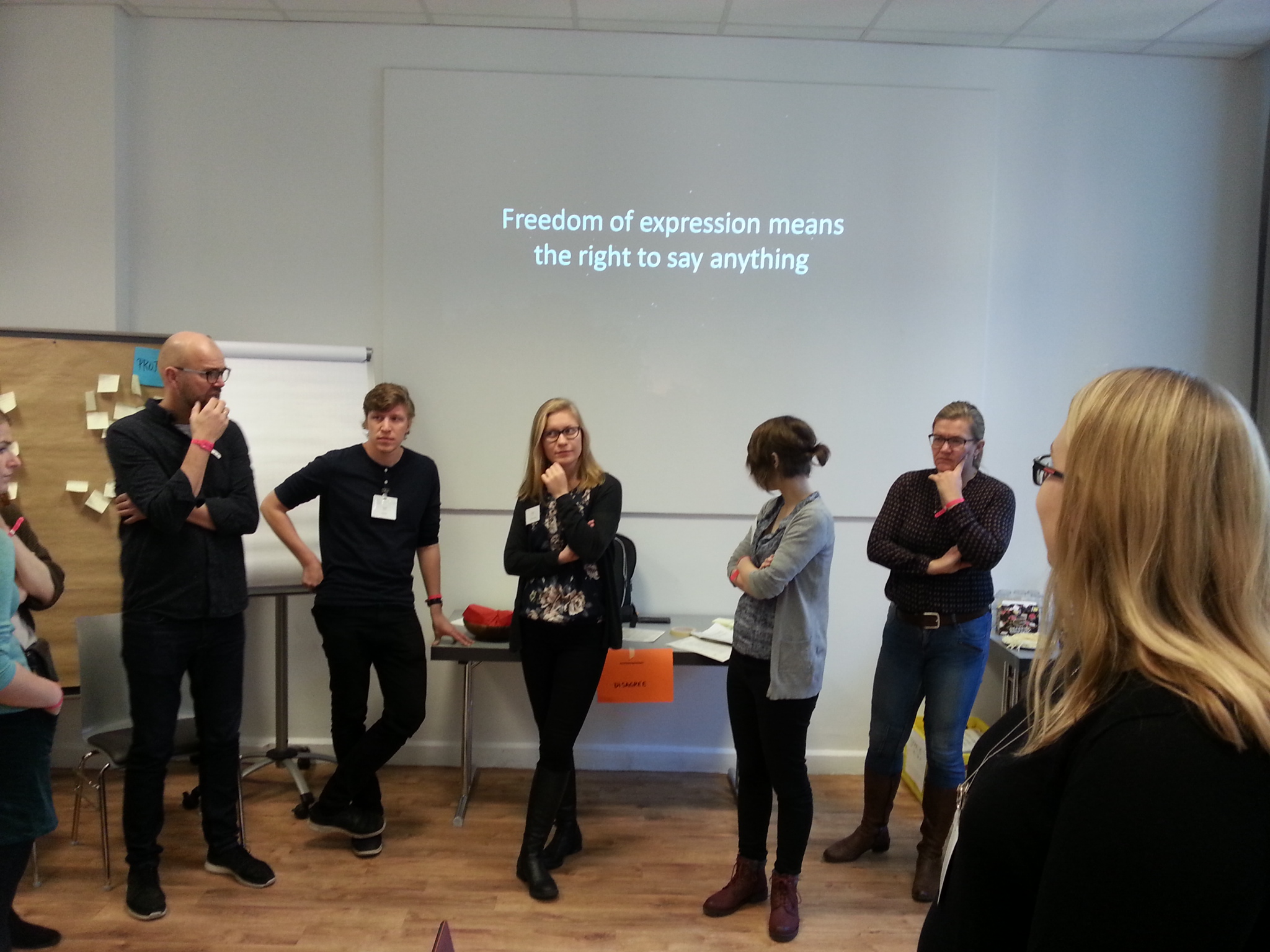Three years ago, none of us could have imagined where we would be today. Not only were we having to meet online, but awareness of racism in society is front and centre, with Black Lives Matter protests happening in cities around the world.
This would be the final meeting for the Standing Together Against Racism in Europe project, at least in its current form. We logged into Zoom with coffees and smiles from eight different countries and nine organisations, to reflect on what we have achieved so far and what might be next.
We started by discussing our hopes, fears and expectations using Miro. This is an online tool that helps recreate the feeling of putting post-it notes on boards, as all our in-person meetings have involved! We had a chance to practice earlier so now was our chance to scribble on our keyboard and position them with the mouse.
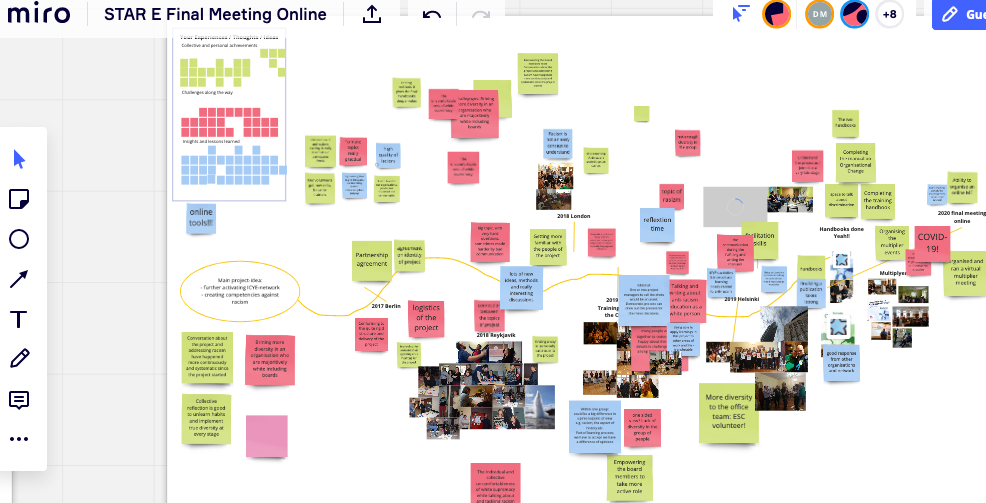
This was a new tool for many of us, but we adapted quickly. Fears ranged from the technology going wrong during the day to whether the lack of racial diversity in our own group might hold us back. Hopes and expectations centred around our optimism for the programme and our feeling that the handbooks we had produced are an excellent way to engage young people and organisations to be the change they want to see.
We spent time reflecting on the journey we had been on: our collective & personal achievements, challenges along the way and insights and lessons learned. The things that resonated were getting the handbooks finished, celebrating and how well designed they are; learning how to do online meetings ourselves through the multiplier events; and the time spent together at each of the meetings over the last three years.
Andreas has been pivotal to the success of this project. He took the opportunity to summarised how the project went and key milestones along the way. We then reflected on how we used the resources provided and the changes that were experienced in our organisations as a result. Many of the ICYE member organisations have been using the methods at camps and with their young people already.
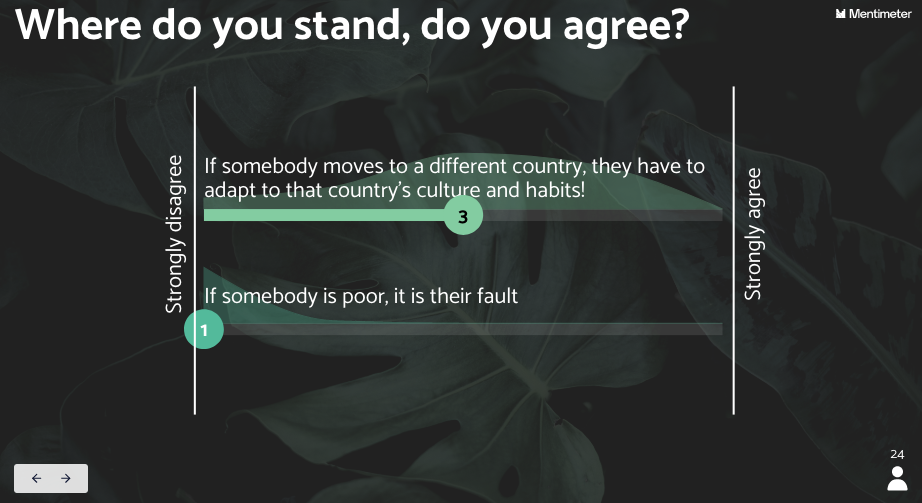
We had been introduced to Mentimeter at the meeting in Cadca, which is an interactive tool that allows people to vote and make other contributions as part of a presentation. Balint prompted us with challenging questions and we then discussed the results. There was a consensus that this would be a useful tool for future work, in particular to see how people’s positions can change over the course of time.
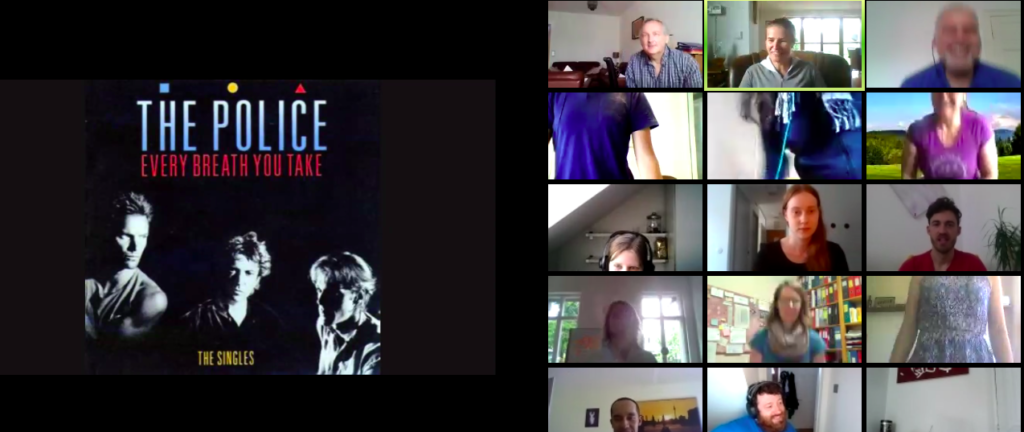
Lenka from Keric had an excellent way to recreate the benefits of an energizer in an online setting. She played Roxanne’by the Police: all the women had to stand when Sting sang the word “Roxanne” and the men had to stand when he sang “Red light”. It definitely got us moving and brought up the energy for the afternoon session.
The bulk of the afternoon was spent discussing the future of the project: how we could develop the content already produced, how to adapt it for a post-Covid world, what role the website could play, how to broaden our networks.
If you have ideas or suggestions for how this project might move forward in future, please share them in the comment box below!
To get a sense of how each session during the day was received, Balint asked us to use our faces as the rating scale. Hand on the forehead meant great, hand pointing to the eyes, was not bad, hand to the mouth was ok, and hand to the nose was stinky! It was a lovely way to see and share how we felt about the day and in general feedback was positive, despite six hours sat in front of the Zoom screen.
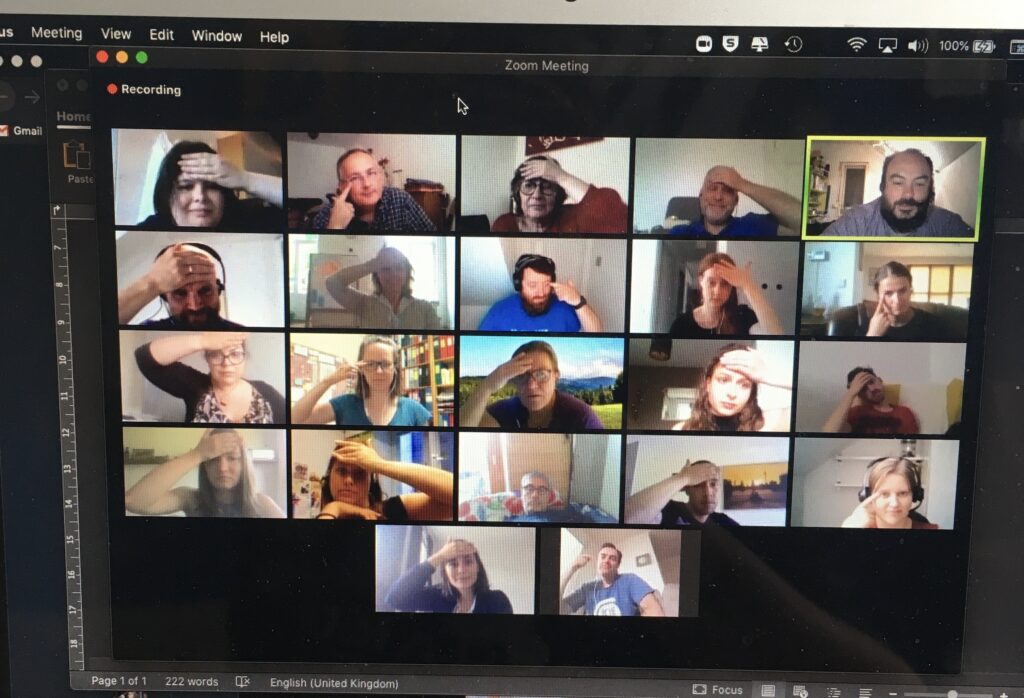
The day ended without a sense of finality. While this project has finished, it feels like there is more to be done and there is a great energy among all the partners to be part of combating racism through engaging young people and encouraging organisations to change for the better.
We all have a part to play in standing together against racism in Europe
